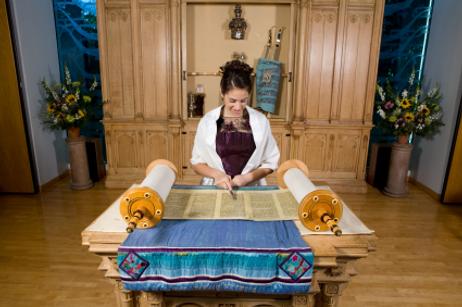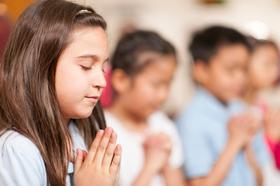If you are a Jewish parent thinking about private school for your son or daughter, you will probably want to consider sending your child to a Jewish school. Of course, much depends on how observant a Jew you are or consider yourself to be. That will influence your decision in many ways, some subtle, some more obvious.
Many questions will surface at this point. Here are some questions that you should answer before proceeding with a more detailed search for the right school. As you think of other questions that need answering, add them to the list.
- Why should your child attend a Jewish school?
- When should your child attend a Jewish school?
- How should your child be taught?
- What should your child be taught?
- Where should your child go to school?
- Why should your child attend a Jewish school?
This question addresses perhaps the most important aspect of this discussion. Why, indeed, do you want your child to have a Jewish education? Only you, as parents, can decide why a Jewish education has value for you. Is your family tradition driving this decision? Are your religious beliefs so important to you and your family that a Jewish education for your children is simply the only option? You need to understand that any parent who sends his child to a religious school is making a strong statement about his faith and the importance that it holds in his life. It will set your child apart from his peers in a very secular world where religious values and principles are routinely ignored. Giving your child a religious education essentially trains him to believe that there is a higher power who is responsible for everything in his life and the world around him.
When should your child attend a Jewish school?
This question deals with the timing issue. Do you want your child to start his Jewish education in the preschool and elementary years or perhaps wait until middle or high school? For many parents, the timing is determined by financial considerations. A private education costs money. If money is not an issue, then you need to deal with the issue of whether your child should wait until high school or start in the primary grades. The availability of appropriate schools will influence your choices, depending on where you live. For example, you will probably have more options if you live in Los Angeles or Brooklyn than if you live in Omaha.
Here's an overview of the Solomon Schecter School in Chicago.
How should your child be taught?
Consider teaching methods carefully. How the school teaches your child is a critical area you must evaluate thoroughly. You must consider teaching styles and other pedagogical issues in the early years.
- Do you want a child-centered approach like Montessori or Waldorf schools?
- Do you prefer a more traditional approach? In the middle school and high school years, the wisdom and years of training that most rabbis offer are something you should expect.
- Does the school have a resident rabbi? Several rabbis? As children reach those questioning years, you will want the stability and sound counsel that a trained rabbinical person can give to be part of your child's education and spiritual maturation. A rabbi can relate your child's faith to the world around him. A rabbi will be able to explain the events of history as they impact the Jewish people and do so with authority.
What should your child be taught?
You must decide what strength of Jewishness you wish to shape your child. Think of it as Jewish lite, if you will, or full strength. And every shade in between those two extremes. As you begin to choose the best school for your child, what is 'right' for you and your child will mean the most judicious balance of academics and religious training. If you are an Orthodox Jew, and the only Jewish school available to you in your area is a very liberal Reform school, you will have to make that tough decision. Do you send your child to a public school with a separation of religion and school? Or do you swallow hard and compromise your religious values by sending her to a Jewish school that does not observe the rules you hold so dear in your family and personal life? That is the point where you realize that no matter how wonderful the school is, it is truly up to you, the parent, to teach and uphold all that is important to you as a Jew. Your Jewishness is intrinsically something you must teach by example. That has never changed over the centuries.
This video gives us an overview of Yeshiva of Flatbush Joel Braverman High School in New York.
Where should your child go to school?
Ideally, you have arrived at this point by trying to answer the basic questions above. Once you have clearly articulated those answers and agreed with all interested parties on your course of action on Jewish education for your child, the next step is to identify schools that will meet your requirements. Fortunately for you, by choosing a Jewish education, you immediately eliminate 90% or more of the schools in your area. The exception, of course, is Brooklyn, New York, which has over 139 Jewish schools. Still, in dozens of major American cities, you will find several options from which to choose. Here is a look at Jewish Community High School of the Bay.
Follow the process laid out when selecting a private school. Ask questions. Observe. Evaluate. Take notes of your findings. Discuss any questions and issues with your trusted family, friends, and advisors. In the end, it is up to you which school is the best fit for your needs and requirements.
More importantly, always remember that any school is a partner in educating your child in the Jewish faith. If you think of yourself as the managing partner in this partnership, you will understand that you are the most important factor in your child's education. The bonds of family and family tradition are infinitely stronger than the instruction that a child receives in any school setting. Your faith is the road map along which you guide your child by example with unquestioning love.
Questions? Contact us on Facebook or Instagram. @privateschoolreview
#JewishEducation #PrivateSchools #FaithBasedLearning #ParentingChoices #JewishValues













